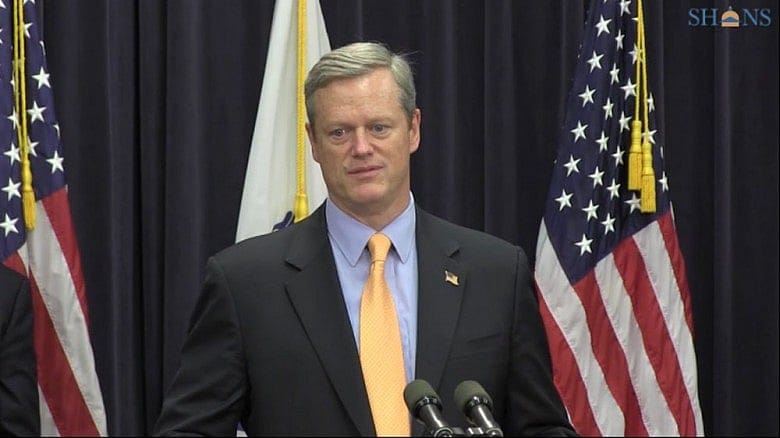Baker: Charter debate boils down to disruption, control, funding

STATE HOUSE — Gov. Charlie Baker, who earlier this week testified in support of his bill to expand access to charter schools, said Thursday that he views the fight over whether or not to expand access to charter schools as being about disruption in education, the funding formula for schools and local control.
Likening it to the fight over transportation companies like Uber, Baker said part of the battle is that charter schools have disrupted the traditional public school model.

